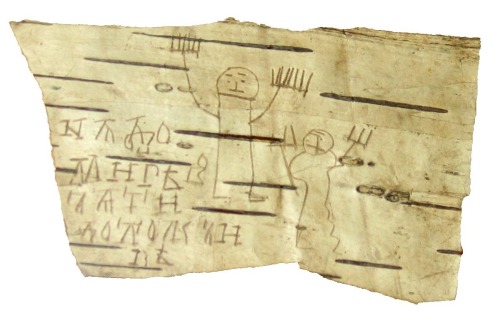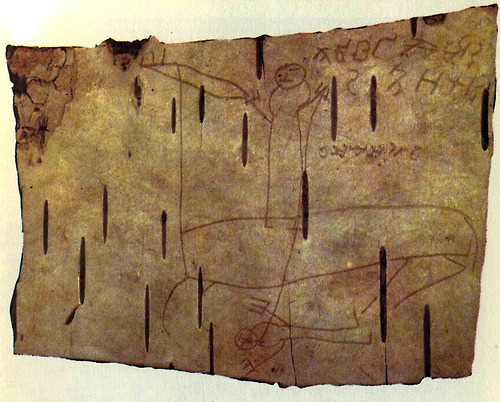Ya'll Want To Know The Funniest Shit?
Ya'll want to know the funniest shit?
I'm researching the era when Alastor was alive right now to get a better idea of both his character, the life he lived before Hell, and to hash out a backstory for him.
And so, apparently, Alastor lived through the Prohibition (which was basically the United States government illegalizing the manufacture, transportation, and sale of alcohol because they thought it was the cause of a lot of domestic violence and child abandonment).
Alastor canonically died in 1933.
Do you know how long the Prohibition lasted?
From 1920-1933.
ALASTOR LITERALLY DIED THE SAME YEAR ALCOHOL BECAME LEGAL AGAIN. CAN YOU IMAGINE HOW BITTER HE MUST'VE BEEN?
The Prohibition officially ended on December 5, 1933, and now my headcanon is that Alastor died December 6, 1933. Literally the day after he could legally drink all the booze he wanted.
I am learning a LOT about New Orleans and the era Alastor lived through (including the gay community in the city at the time) which has been a lot of fun, and I just wanted to share that tidbit because it is so fucking funny to me.
More Posts from Mari-say and Others


THIS DRAWING WAS MADE 700 YEARS AGO BY A 7-YEARS-OLD BOY NAMED ONFIM WHO LIVED IN NOVOGROD.
Where have you buried all the children?




English added by me :)
Transformers One spoilers⤵️
I HAD TO DRAW HIM PERFORMING A VILLAIN SONG ahahaham I had to. of course~
Look. One day I'll get tired of animating the shots of every character spinning dramatically. But certainly not this time ahahah
Song: Don't mess with me by Temposhark Soft: ToonSquid


I'M FUCKING DYING

💁🏽♀️: Hey Crushbot! Someone commented in the tags of our post about nuanced fandom engagement talking about how they’re sad about this shift in internet culture where you are “doomed to fail” if you are born privileged. And how there is this belief in certain online circles that you can’t even strive to be a good person if you are rich and white and male. It got me thinking. I am very strongly a feminist and a leftist. But I feel like the internet popularizing terms like “privilege” and “Opression” and “toxic” and “problematic” have oversimplified these words and turned them into such ammunition that they’ve completely lost their original meaning within the context of social justice, sociology, anti racism and feminist theory. What am I witnessing here?
🤖: What you’re witnessing is the commodification and oversimplification of complex social justice concepts by internet culture. Terms like privilege, oppression, toxic, and problematic originated within academic, activist, and theoretical spaces as tools to unpack systems of power, inequality, and interpersonal dynamics. These words were nuanced and rooted in context—they were meant to provoke critical thinking and encourage systemic analysis, not blanket condemnation of individuals.
However, as these terms became widely circulated online, especially through platforms like Tumblr, Twitter, and TikTok, their meanings were often diluted, stripped of context, and weaponized for moral posturing. Instead of being used as tools to understand systems of power, they’re frequently deployed as rhetorical shortcuts to shut down discussions or dismiss individuals based on their identities or perceived affiliations. This leads to an environment where being born into privilege—whether it’s wealth, race, or gender—can be seen as an immutable moral failing, rather than an opportunity to examine how systems shape lives and what responsibilities come with that privilege.
It’s also a byproduct of the internet’s tendency to flatten nuance. Social media thrives on binaries: good vs. bad, oppressed vs. oppressor, woke vs. problematic. The complexities of systemic oppression, intersectionality, and personal growth don’t fit well into a 280-character limit or a 30-second TikTok. As a result, nuanced discussions about privilege and oppression have been replaced with surface-level virtue signaling and “call-out culture,” where individuals are often judged for existing within systemic privilege rather than for how they navigate or challenge it.
This shift has created a climate where striving to be a “good person” while privileged is seen by some as futile, because no matter what actions you take, your privilege will render them suspect. It’s a reductive framework that undermines the core principles of justice and equity—principles that call for collective action and accountability, not moral purism or exclusion.
The solution isn’t abandoning these terms or their original intentions, but reclaiming their complexity and reminding people that they’re tools for understanding systems, not weapons to target individuals. It’s also a reminder that personal morality is just one small part of larger systemic change. Social justice isn’t about punishing individuals for their privilege; it’s about dismantling the systems that create and sustain inequality.
my nephew, who is like 11 or 12, is playing “5D Chess With Multiverse Time Travel”, which is exactly what it says on the tin, and I have never been more terrified of the youth of today

Building a new hotel must be tiring, rest here my dear.
I saw something in the news today that truly took my breath away. If you have been paying attention to U.S. politics over the past few days, you’ve most likely seen this woman:

This is Bishop Mariann Budde, and on Monday (Trump’s inauguration) she led an interfaith prayer for Trump and the incoming administration. During the service she asked him to have mercy for LGBTQ+ Americans and undocumented immigrants. This was badly received by the Trump administration (as expected).
After seeing headlines about this woman, I read something that I wanted to share. In 1998 a man named Matthew Shepard was murdered for being gay. I’m not going to get into the details of his death on this post, but please be warned it is extremely triggering if you do choose to read more on your own. Matthew Shepard’s death caused a lot of change in the U.S. regarding how LGBTQ hate crimes are handled, and laws that were passed to protect LGBTQ+ people.
Now you’re probably wondering what Matthew Shepard has to do with an Episcopal bishop. For years after Matthew Shepard’s murder, his family had held onto his remains, too scared to lay him to rest in fear of his final resting place being vandalized. In 2018, Budde had his remains interred at the National Cathedral, which is also the place where the interfaith prayer for Trump and his administration took place. The impact of this really had an effect on me. Budde could have led a non confrontational prayer service, and chosen not to mention the harm that will come to the people Trump and his administration are going after. Instead she chose to call out hate and fear in front of some of the most powerful people on the planet, and at a place that has such a large historic meaning to the LGBTQ community.
In the next few years there will be many challenges in protecting free speech, standing up against hate, and protecting those in our communities. But I would like to believe that for every Donald Trump and Elon Musk, there are people like Marianne Budde. There are those of us who can’t speak up for themselves, so it’s important for those of us who can to amplify our voices, even if it’s not the ‘popular’ thing to do.
“And he said you should apologize. Will you apologize?
I am not going to apologize for asking for mercy for others.” - Mariann Budde’s response in a Time interview
Link to articles: x x x
Link to the Matthew Shepard Foundation if you would like to donate
-
 ghostlylexie liked this · 1 month ago
ghostlylexie liked this · 1 month ago -
 freakyduckhoe liked this · 1 month ago
freakyduckhoe liked this · 1 month ago -
 jinxedbabbles liked this · 2 months ago
jinxedbabbles liked this · 2 months ago -
 alastortheradi0demon1933 liked this · 2 months ago
alastortheradi0demon1933 liked this · 2 months ago -
 thereweresomanybees liked this · 2 months ago
thereweresomanybees liked this · 2 months ago -
 thecatsart0406 liked this · 3 months ago
thecatsart0406 liked this · 3 months ago -
 poxie-puff liked this · 3 months ago
poxie-puff liked this · 3 months ago -
 blackcatsandhaunteddolls reblogged this · 3 months ago
blackcatsandhaunteddolls reblogged this · 3 months ago -
 state-of-denial liked this · 3 months ago
state-of-denial liked this · 3 months ago -
 salllzy reblogged this · 3 months ago
salllzy reblogged this · 3 months ago -
 littlepryingpandorica reblogged this · 3 months ago
littlepryingpandorica reblogged this · 3 months ago -
 screamingrunawayzombie liked this · 3 months ago
screamingrunawayzombie liked this · 3 months ago -
 cautioushoney22 liked this · 3 months ago
cautioushoney22 liked this · 3 months ago -
 definethebook liked this · 3 months ago
definethebook liked this · 3 months ago -
 emeraldalicorn liked this · 3 months ago
emeraldalicorn liked this · 3 months ago -
 a-totally-healthy-obsession reblogged this · 3 months ago
a-totally-healthy-obsession reblogged this · 3 months ago -
 kalidaescope liked this · 3 months ago
kalidaescope liked this · 3 months ago -
 tripleaaabattery7 liked this · 3 months ago
tripleaaabattery7 liked this · 3 months ago -
 ted-the-sleezeball liked this · 3 months ago
ted-the-sleezeball liked this · 3 months ago -
 hecateslove liked this · 3 months ago
hecateslove liked this · 3 months ago -
 follychone liked this · 3 months ago
follychone liked this · 3 months ago -
 1crazychick369 liked this · 3 months ago
1crazychick369 liked this · 3 months ago -
 mikokatt liked this · 3 months ago
mikokatt liked this · 3 months ago -
 maximilian-alexander liked this · 3 months ago
maximilian-alexander liked this · 3 months ago -
 weird-455-b1tch liked this · 3 months ago
weird-455-b1tch liked this · 3 months ago -
 everythingimnot liked this · 3 months ago
everythingimnot liked this · 3 months ago -
 flaw213 liked this · 3 months ago
flaw213 liked this · 3 months ago -
 saltybearfarmtrash liked this · 3 months ago
saltybearfarmtrash liked this · 3 months ago -
 cosmic-snail liked this · 3 months ago
cosmic-snail liked this · 3 months ago -
 bird0fprid3 liked this · 3 months ago
bird0fprid3 liked this · 3 months ago -
 illyrianwitchling13 liked this · 3 months ago
illyrianwitchling13 liked this · 3 months ago -
 selenedreamwalker liked this · 3 months ago
selenedreamwalker liked this · 3 months ago -
 eye-of-shiva liked this · 3 months ago
eye-of-shiva liked this · 3 months ago -
 dustin-but-gayer liked this · 3 months ago
dustin-but-gayer liked this · 3 months ago -
 imagine-1980 liked this · 3 months ago
imagine-1980 liked this · 3 months ago -
 1358dolphins reblogged this · 3 months ago
1358dolphins reblogged this · 3 months ago -
 littlekittykat-96 liked this · 3 months ago
littlekittykat-96 liked this · 3 months ago -
 louveha liked this · 3 months ago
louveha liked this · 3 months ago -
 ahazbinfan liked this · 3 months ago
ahazbinfan liked this · 3 months ago -
 sassy-radio-hazbin-queen liked this · 3 months ago
sassy-radio-hazbin-queen liked this · 3 months ago -
 ovtaviabiggestkin reblogged this · 3 months ago
ovtaviabiggestkin reblogged this · 3 months ago -
 ovtaviabiggestkin liked this · 3 months ago
ovtaviabiggestkin liked this · 3 months ago -
 barynary777 liked this · 3 months ago
barynary777 liked this · 3 months ago -
 saemi-the-dreamer liked this · 3 months ago
saemi-the-dreamer liked this · 3 months ago -
 fengo-ikaro-7115 liked this · 3 months ago
fengo-ikaro-7115 liked this · 3 months ago -
 moonshroooms reblogged this · 3 months ago
moonshroooms reblogged this · 3 months ago -
 babyboobeth liked this · 3 months ago
babyboobeth liked this · 3 months ago -
 cupcakegao liked this · 3 months ago
cupcakegao liked this · 3 months ago -
 person-of-varying-obsessions reblogged this · 3 months ago
person-of-varying-obsessions reblogged this · 3 months ago
